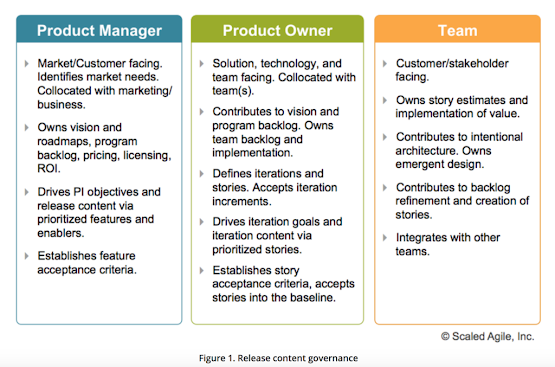Both the product manager and the product owner work towards a common goal, to build and improve products that create meaningful value for customers and all stakeholders within the company.
This usually happens by delivering and optimizing product features.
|
Product
Manager
|
Product Owner
|
|
The product
manager discovers what users need, prioritizes what to build next, and
rallies the team around a product roadmap.
|
The product
owner is responsible for maximizing the value of the product by creating and
managing the product backlog. This person creates user stories for the
development team and communicates the voice of the customer in the Scrum
process.
|
Product Manager and Product Owner's work on below vacuum.
Product manager focus on:
- Business Strategy
- Long term Product Vision
- Long term Product Strategy
- Product Roadmap
- Alignment with Product Owner
Product owner focus on:- Release Plan (Product Backlog ie: Epic)
- Sprint Plan (Sprint Backlog ie: User Story)
- Daily Scrum
- Provide feedback to Product Manager
While the product manager has a highly strategic role and is accountable for the whole product lifecycle and customer-facing.
Product manager decides what products to build next.
Product Manager should spend half their time talking to customers, and half working with the product owner.
The role of the product owner entails a more narrow focus and closer work with the development team.
Product owner helps the development team to build the products as per the goal set by the product owner.
Product Owner should spend half their time talking to product manager and customers, and half working with the team.
In many large organizations that follow Scrum, product owners are very much part of the engineering department rather than the product department.
They may be called "product owners" but it might be more accurate to describe them as "product backlog owners" or "product backlog keepers".
In bigger companies, the product manager stands a level higher than the product owner and serves as a connector between the organization and the outside world.
This is why it's sometimes so hard to draw a line between the two positions or jobs.


Comments
Post a Comment